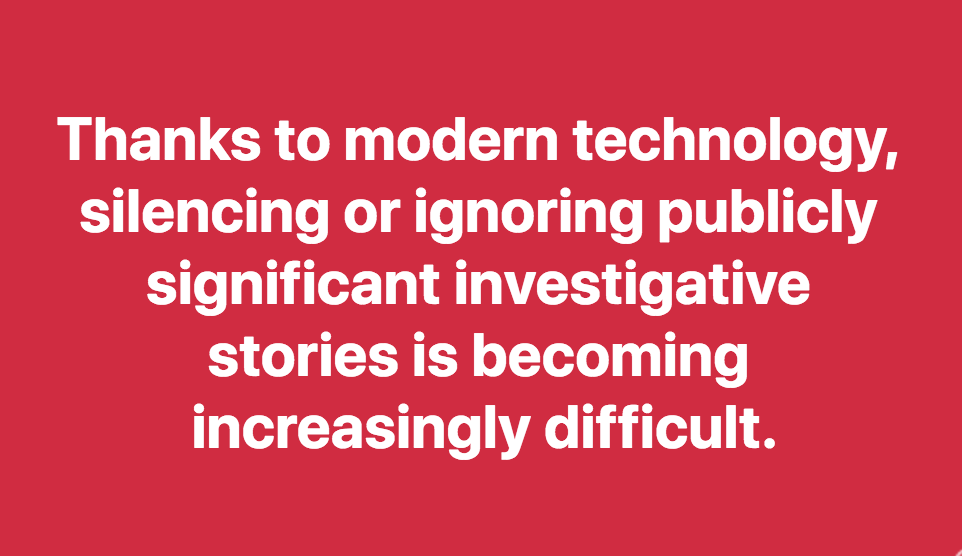By Pauline Adès-Mével
 Since it joined the European Union a decade ago, Bulgaria has tumbled down in the annual press freedom ranking by Reporters Without Borders, slipping from 35th place in 2006 to 111th in 2018 (out of 180). It is by far the worst-placed EU member state and lags behind the six Balkan countries applying for EU membership. Some observers claim that there is a correlation between this deterioration and the Bulgarian government’s campaign to burnish its image and to make Brussels institutions believe that there are improvements in the fight against corruption. Hence its interest in muffling investigative journalism.
Since it joined the European Union a decade ago, Bulgaria has tumbled down in the annual press freedom ranking by Reporters Without Borders, slipping from 35th place in 2006 to 111th in 2018 (out of 180). It is by far the worst-placed EU member state and lags behind the six Balkan countries applying for EU membership. Some observers claim that there is a correlation between this deterioration and the Bulgarian government’s campaign to burnish its image and to make Brussels institutions believe that there are improvements in the fight against corruption. Hence its interest in muffling investigative journalism.
It may sound like a paradox, but when it comes to media freedom, the country is, technically speaking, a good place for investigative journalism. For motivated journalists in Bulgaria, it is easy to detect, investigate, and collect proof of corruption and abuse of power. But when it comes to making their findings public, instead of receiving gratifying applause, journalists are likely to hit a wall of silence, face authorities with “eyes wide shut,” or, even worse, be followed, intimidated, discouraged through smear campaigns, and labeled “enemies of the state.” The reasons are classic: corrupt editors and publishers, self-censorship, pressure from the authorities, and media ownership concentrated in the hands of oligarchs who use the press as “media bats” to gain control and punish the few defiant journalists.
In recent years, Bulgarian investigative journalists have engaged in successful judicial battles against administrations that, for different reasons, had refused to provide important public information. Most often, when such disclosure of information was likely to expose wrongdoing or corruption, the authorities cited fallacious reasons for refusing access—that disclosure would breach third parties’ trade secrets or involve revealing private information. Fighting these refusals in court is worthwhile because, even if the lawsuits take months or years to resolve (and cost money), their successful outcomes pave the way for faster and easier access to information in the future.
Producing quality journalistic investigations is not a problem for Bulgarian journalists. The problem is publishing them, gaining publicity, and achieving the desired effect. It is common practice for editors to negotiate corrupt deals with the subjects of investigations or to succumb to political pressure. The practices above are a public secret. Recently, several investigative journalists reported that the management of the TV station they worked for had suspended or purposely thwarted investigations of politicians. Political pressure on big media is exerted either directly, through owners, or indirectly, through advertisers. In addition, as administrator of European funding, the state has a powerful direct financial tool for media control. By directing European funds only to certain media, the state creates dependence and further lack of transparency.
 Investigative journalists in Bulgaria are subjected to various types of pressure. Fortunately, no investigative journalists have been killed in Bulgaria for their work, but there are documented cases of serious threats targeting investigative reporters. Not a single case has been solved, and nobody has ever been charged for assault on journalists, with the state itself having a shameful record of administrative and judicial persecution of investigative reporters. Furthermore, there are numerous libel cases that politically exposed persons have initiated against journalists. The practice of the Prosecutor’s Office to hush or crush official investigations initiated on facts and evidence of corruption or abuse of office collected by journalists is demotivating, especially when these investigations concern political corruption at the high echelons of power.
Investigative journalists in Bulgaria are subjected to various types of pressure. Fortunately, no investigative journalists have been killed in Bulgaria for their work, but there are documented cases of serious threats targeting investigative reporters. Not a single case has been solved, and nobody has ever been charged for assault on journalists, with the state itself having a shameful record of administrative and judicial persecution of investigative reporters. Furthermore, there are numerous libel cases that politically exposed persons have initiated against journalists. The practice of the Prosecutor’s Office to hush or crush official investigations initiated on facts and evidence of corruption or abuse of office collected by journalists is demotivating, especially when these investigations concern political corruption at the high echelons of power.
There is some good news. Thanks to modern technology, silencing or ignoring important and publicly significant investigative stories is becoming increasingly difficult. Independent online publishing platforms and social networks play a crucial part in that. The Streisand effect, whereby authorities attempt to mute or diminish the effect of serious journalistic investigations, also works in journalists’ favor by drawing attention to suppressed stories.
Pauline Adès-Mével is the director of the EU and Balkan desk of Reporters Without Borders.

